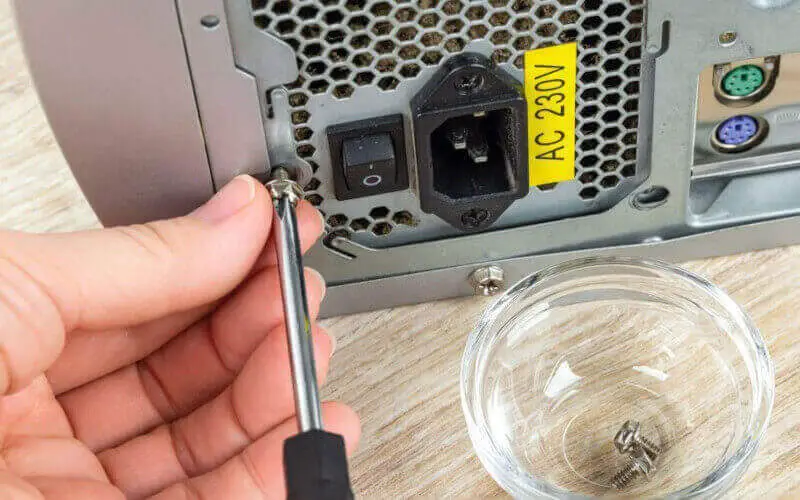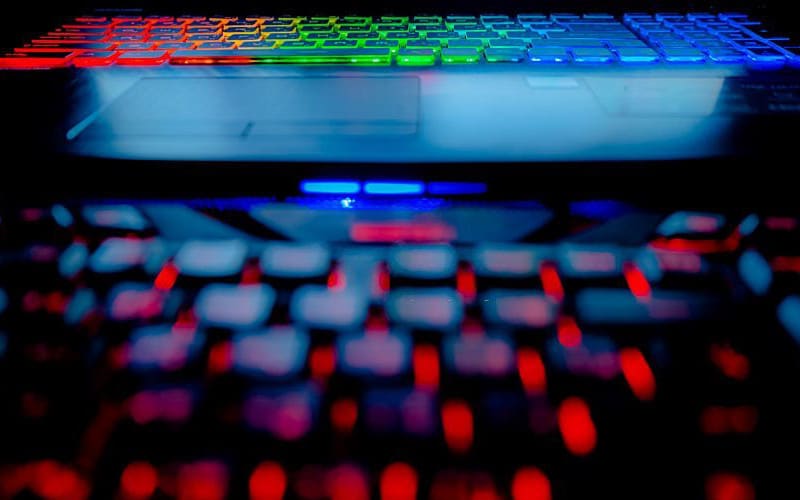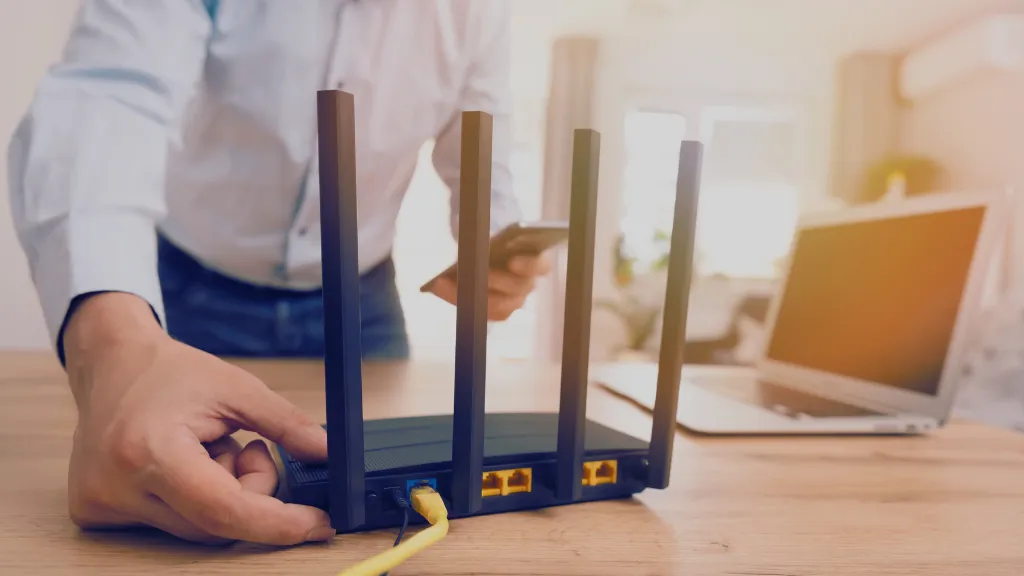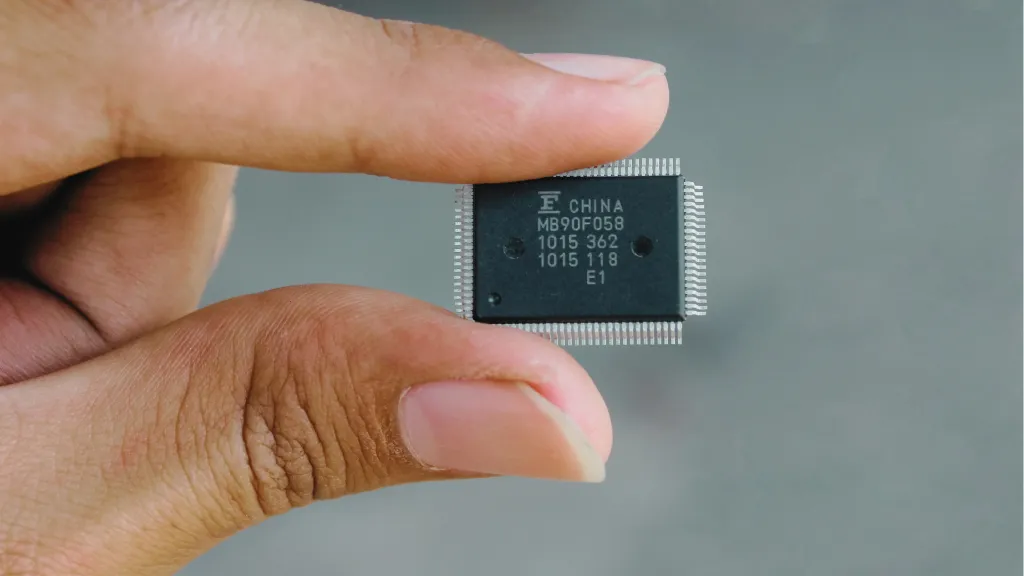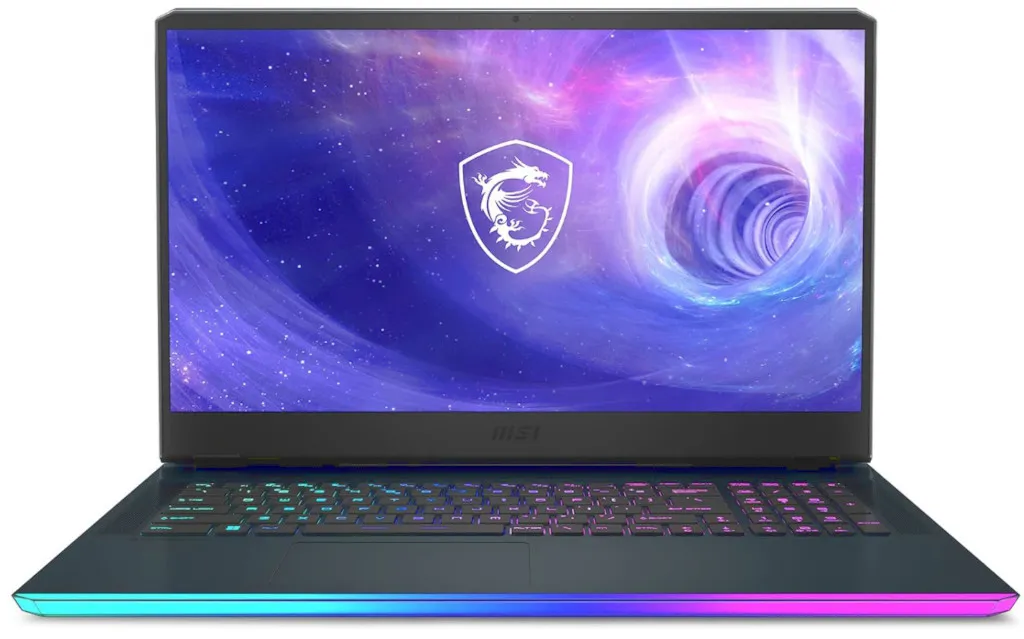If you’re like me, you rely on your computer for almost everything. From work to gaming to streaming, it’s a crucial part of our daily lives. And if you like to tinker with their computer or build your own, you’ve probably heard a lot about the importance of a good power supply unit (PSU).
But have you ever wondered if a faulty PSU could damage your GPU? That’s the question we’re going to explore in this article.
What is a PSU?
Before we dive into whether a faulty PSU can damage your GPU, let’s first talk about what a PSU is. In simple terms, a power supply unit (PSU) is the component in your computer that provides power to all its other components. It’s what plugs into the wall and converts the AC power into the DC power that your computer needs to run.
Think of the PSU as your computer’s heart- it keeps everything else running smoothly. Without a good PSU, your computer couldn’t function at all. But not all PSUs are created equal.
There are different types and sizes of PSUs, and choosing the right one for your computer is crucial to ensure that all your components get the power they need to function properly.
What is a GPU?
Now that we’ve discussed what a PSU is, let’s move on to the GPU. A GPU, or graphics processing unit, is a component in your computer responsible for rendering images and videos. It lets you see everything on your screen, from the icons on your desktop to the graphics in your favorite games.
While your computer’s CPU (central processing unit) can technically handle graphics processing, a GPU is specifically designed for it, which means it can handle more complex tasks and produce higher-quality images. A good GPU is essential if you like to game or work with graphics-intensive applications.
Like PSUs, there are different types and sizes of GPUs, and choosing the right one for your needs is important. Some people may be happy with a basic GPU that can handle everyday tasks, while others may need a high-end GPU with advanced features and capabilities.
Can a Faulty PSU Damage Your GPU?
Let’s get to the heart: can a faulty PSU damage your GPU? The short answer is yes, it definitely can.
Here’s why: a PSU that’s not functioning properly can send too much or too little power to your computer’s components, including your GPU. If the PSU sends too much power, it can overload your GPU and cause damage. On the other hand, if it’s not sending enough power, your GPU may not get the power it needs to function properly, which can also cause damage.
In addition, a faulty PSU can also cause voltage fluctuations, which can damage your GPU over time. These fluctuations can cause your GPU to overheat or receive too much power, leading to permanent damage.
It’s important to note that a faulty PSU can also damage other components in your computer, not just your GPU. That’s why choosing a high-quality PSU and regularly maintaining it to ensure it functions properly is crucial. If you’re looking for a PSU, check out my review of Corsair vs Evga.
So, in short, a faulty PSU can damage your GPU and other components in your computer. It’s important to take proper precautions to prevent this from happening, which we’ll discuss in the next section.
Signs of a Faulty PSU
Now that we know a faulty PSU can damage your GPU, it’s important to know how to recognize signs that it may not function properly.
Here are a few common signs:
- Your computer randomly shuts down or restarts: If it shuts down or restarts independently, it could be a sign of a faulty PSU. This is because the PSU provides power to your computer’s components, including the CPU and GPU.
- Your computer won’t turn on: If it won’t turn on at all, it could be a sign of a faulty PSU. This is because the PSU provides power to your computer, and if it’s not functioning properly, it won’t be able to turn on.
- Your computer is experiencing random errors: If it is experiencing random errors or crashes, it could be a sign of a faulty PSU. The PSU can cause voltage fluctuations, leading to errors or crashes.
- Your PSU is making strange noises: If you hear strange noises from your PSU, such as buzzing or clicking, it could be a sign of a faulty PSU. These noises can indicate that the PSU is not functioning properly and could damage your components.
If you notice any of these signs, addressing the issue as soon as possible is important to prevent further damage to your components.
How To Prevent Damage To Your GPU From A Faulty PSU?
Now that we know the signs of a faulty PSU, let’s talk about how to prevent damage to your GPU and other components in your computer.
First and foremost, it’s important to choose a high-quality PSU from a reputable manufacturer. A good PSU will have built-in protection features that can prevent damage to your components in the event of power fluctuations or surges.
Additionally, you should regularly maintain your PSU by cleaning it and ensuring it’s not clogged with dust or debris. Overheating can cause your PSU to malfunction, which can lead to damage to your components.
Another way to prevent damage is to monitor your computer’s temperatures using software such as HWMonitor or Core Temp. If your GPU or other components are running too hot, it could indicate a problem with your PSU.
Finally, you should always shut down your computer properly and avoid turning it off by unplugging it or using a power strip. This can cause power fluctuations that can damage your components.
Preventing damage to your GPU from a faulty PSU involves choosing a high-quality PSU, regularly maintaining it, monitoring your computer’s temperatures, and shutting it down properly. By taking these precautions, you can help ensure that your components, including your GPU, remain safe and functioning properly.
Conclusion
A faulty PSU can damage your GPU and other components in your computer. This is because the PSU is responsible for providing power to your computer’s components. If it’s not functioning properly, it can send too much or too little power to your GPU, leading to permanent damage over time.
To prevent damage, it’s important to choose a high-quality PSU, regularly maintain it, monitor your computer’s temperatures, and shut it down properly. By taking these precautions, you can help ensure that your components, including your GPU, remain safe and functioning correctly.
If you notice signs of a faulty PSU, such as random shutdowns or strange noises, it’s important to address the issue as soon as possible to prevent further damage to your components. Ultimately, by being vigilant and taking proper care of your computer, you can help prevent damage and extend the life of your components.

